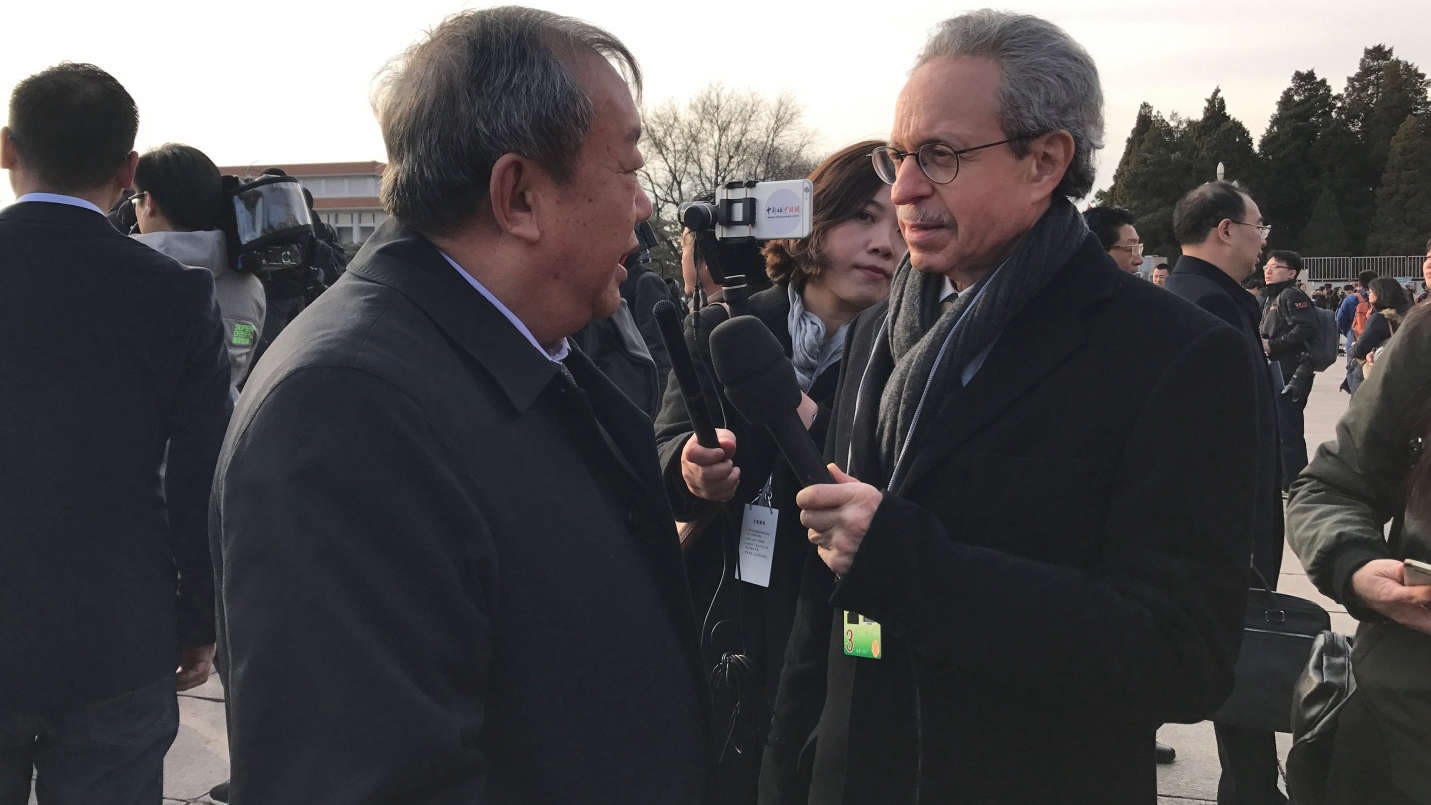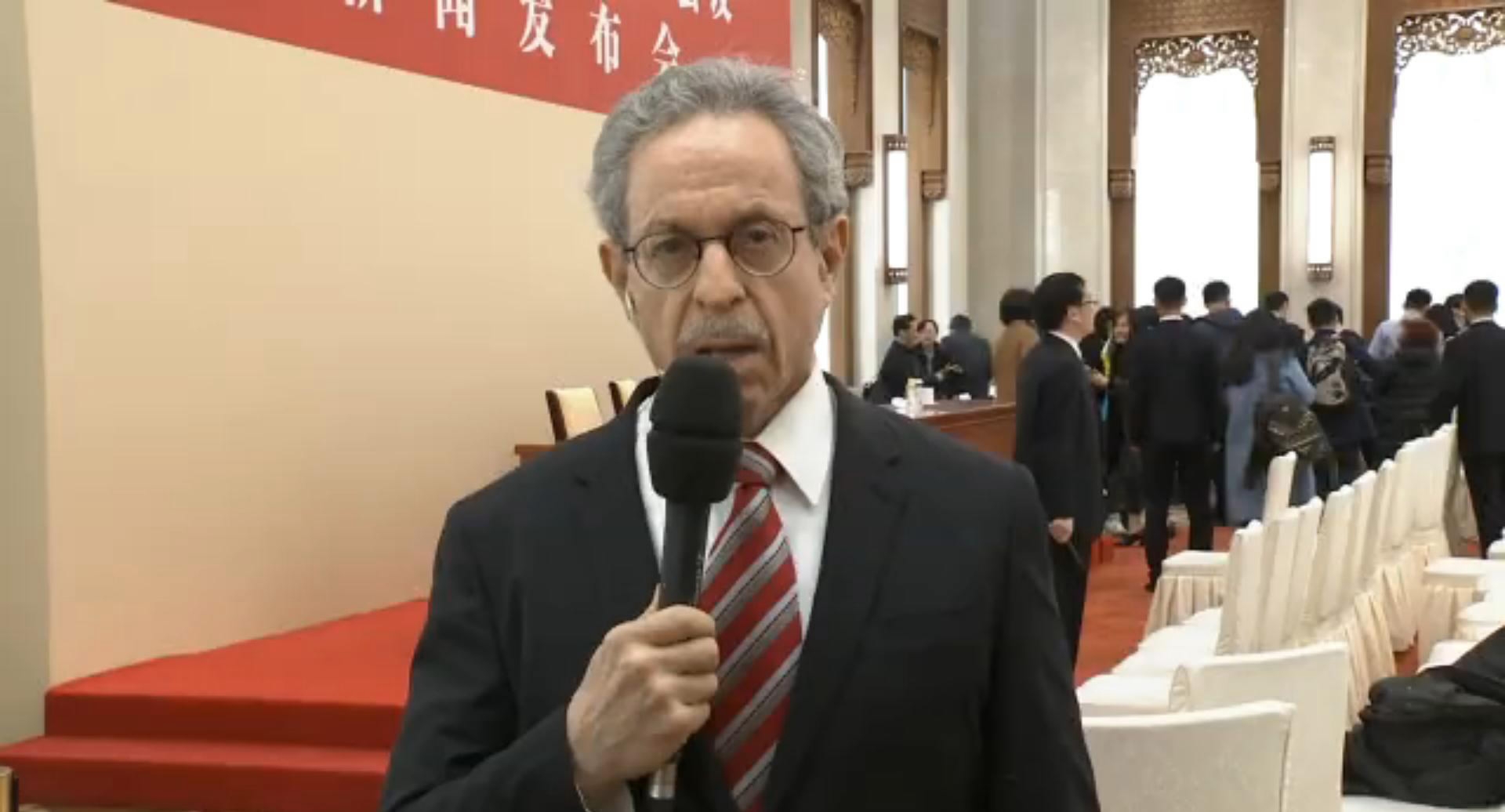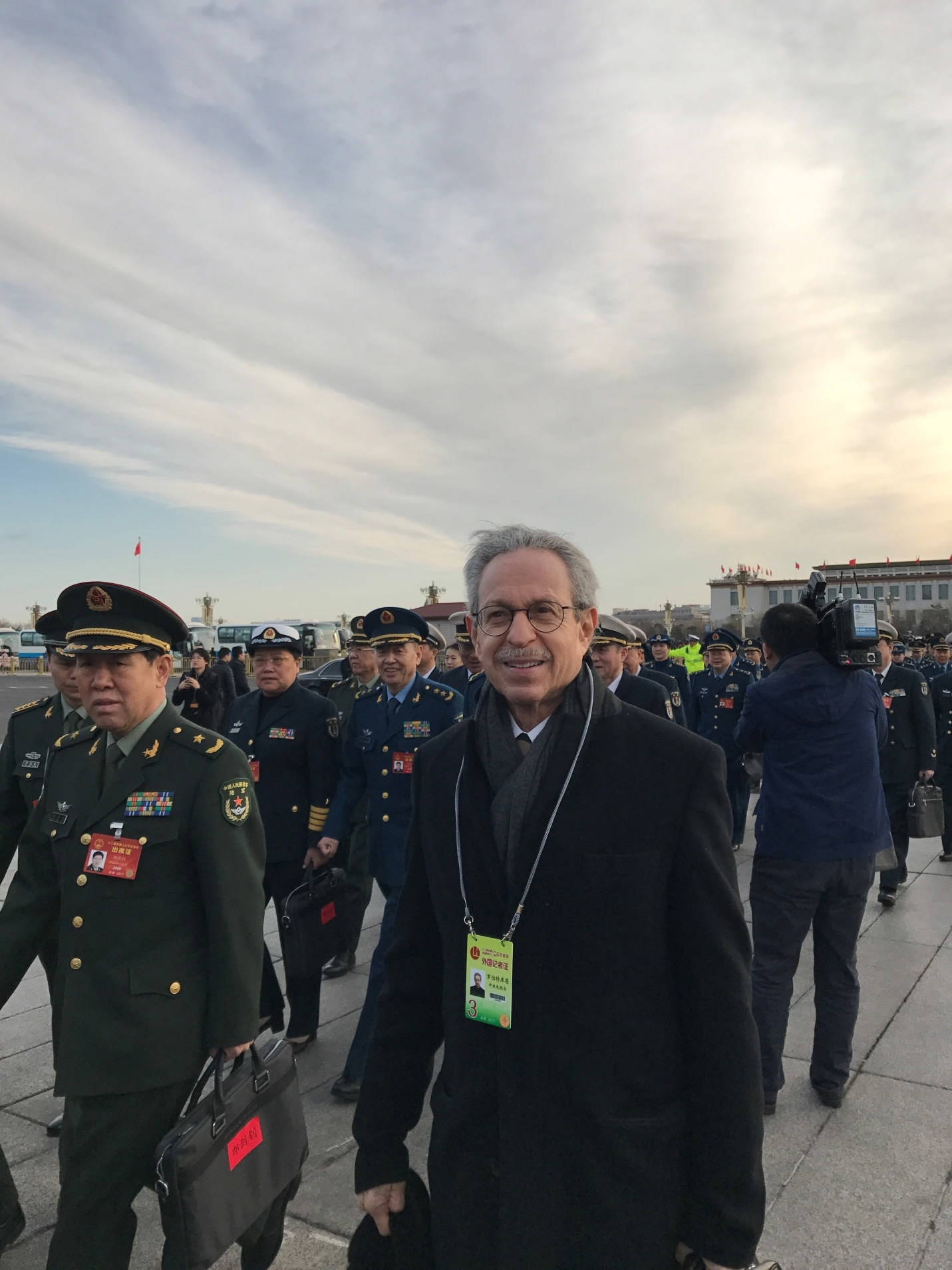
Politics
12:30, 06-Mar-2017
Kuhn’s view on Two Sessions: The Pervasiveness of Reform
Updated
10:58, 28-Jun-2018

By CGTN's commentator Robert Lawrence Kuhn
Listening to Li Keqiang, Premier of the State Council, give the annual “Report on the Work of the Government” to the almost 3000 delegates of the National People’s Congress (NPC) assembled in the Great Hall of the People in Tiananmen Square, is to be encompassed by the civilization-state pageantry of China state power and the sheer magnitude of managing this huge country.
One’s instant impression is that to understand China one must comprehend the country as a whole, integrating political, social, cultural and ecological sectors with economic matters. In fact, to focus only on the economy – which is what most foreign media do – is to adjust the lens with which to view China.
The headlines are obvious: a comforting 6.5 percent GDP growth rate (“or higher if possible in practice”) along with a 7 percent growth in military expenditures announced earlier, which was lower than in recent years and less than expected, thus “comforting” in a different sense.
But there is far more to the story. All categories of China are covered in the Work Report, as they are every year. I am always impressed by the structure, sophistication and comprehensiveness of these Work Reports, as well as by their technical precision, which every year follow a similar form. That’s why I listen carefully for those aspects, often subtle, that are new or nuanced, distinctions discerned only by comparison with previous years.

Kuhn at NPC Press Conference / CGTN Photo
Kuhn at NPC Press Conference / CGTN Photo
To me, this year, three such aspects stand out: reform, innovation, and the leadership of President Xi Jinping.
First, while reform has always been a prime feature of Work Reports (for as long as I’ve been following them), the pervasiveness of reform this year makes it special. Almost every section is founded on 'reform'. Regarding the economy, “supply side structural reform” is now the well-known catchphrase, and the Work Report calls for cutting industrial overcapacity, reducing urban real estate inventory, deleveraging Chinese firms by decreasing enterprise debt down to acceptable levels, and cutting costs for doing business. All this I expected.
What I did not expect was that the space in the Work Report allocated to the last category (cutting costs) was more than the first two categories and included five specific prescriptions for implementation (including the substantial reduction of a blizzard of government-imposed fees and administrative charges, about which high-profile entrepreneurs have been complaining publicly).
Reform in the Work Report is not limited to the economy; it affects almost every aspect of the government’s domain, including migrant work residency (huokou) reform, healthcare system reform, streamlining the government bureaucracy, improving the intellectual property rights system, and institutional reform to bolster environmental protection.

Kuhn reporting in front of the Great Hall of the People / CGTN Photo
Kuhn reporting in front of the Great Hall of the People / CGTN Photo
Innovation is stressed as the key for industrial transformation — not simply general platitudes about improving China's science and technology but practical steps such as enabling universities and research institutes to “truly operate with autonomy” and to “ensure that incentive policies like stocks, options, and dividends are implemented”.
It could hardly be clearer that China’s contemporary “Socialism with Chinese characteristics” is continuing to differentiate itself from the failed forms of socialism that founded the old Soviet Union and passed to China prior to the reform and opening-up policy of Deng Xiaoping.
The pervasiveness of reform and the call for innovation is unambiguously the product of President Xi Jinping’s leadership, which exemplifies the third aspect of what, to me, really stands out in this year’s Work Report. Highlighted are “[CPC] General Secretary Xi Jinping’s major addresses and his new vision, thinking, and strategies for China’s governance” and Xi’s “Four Comprehensive” — finish building a moderating prosperous society, deepen reform, advance the law-based governance of China, and strengthen Party self-governance.

Kuhn is one of CGTN's foreign reporters at Two Sessions / CGTN Photo
Kuhn is one of CGTN's foreign reporters at Two Sessions / CGTN Photo
One need not be a “China Hand” to see that Xi’s “Four Comprehensives” — or “Four-Pronged Comprehensive Strategy” in the longer-form English translation of the same Chinese (四个全面) — has been elevated to a foundational theory of the state.
The overarching importance of President Xi’s emergence as China’s pre-eminent leader is that it signals that there is political stability in China and that the 19th CPC National Congress should play out according to expectations. This would mean that following the CPC National Congress, China can focus on the hard tasks of continuing reform with renewed leadership, commitment and energy under the leadership, as they say, of the CPC Central Committee with General Secretary Xi Jinping as its “core”.
“Core” (核心) is the monumental word of elite politics in China. In perhaps the most significant political event of 2016, it was at the 6th Plenum of the 18th CPC National Congress in October that Xi’s “core” position was formally affirmed.
********************************************
Robert Lawrence Kuhn is a public intellectual, political/economics commentator, and international corporate strategist. He is the host of Closer To China with R.L. Kuhn on China Global Television Network (CGTN), produced by Adam Zhu.
1km

SITEMAP
Copyright © 2018 CGTN. Beijing ICP prepared NO.16065310-3
Copyright © 2018 CGTN. Beijing ICP prepared NO.16065310-3